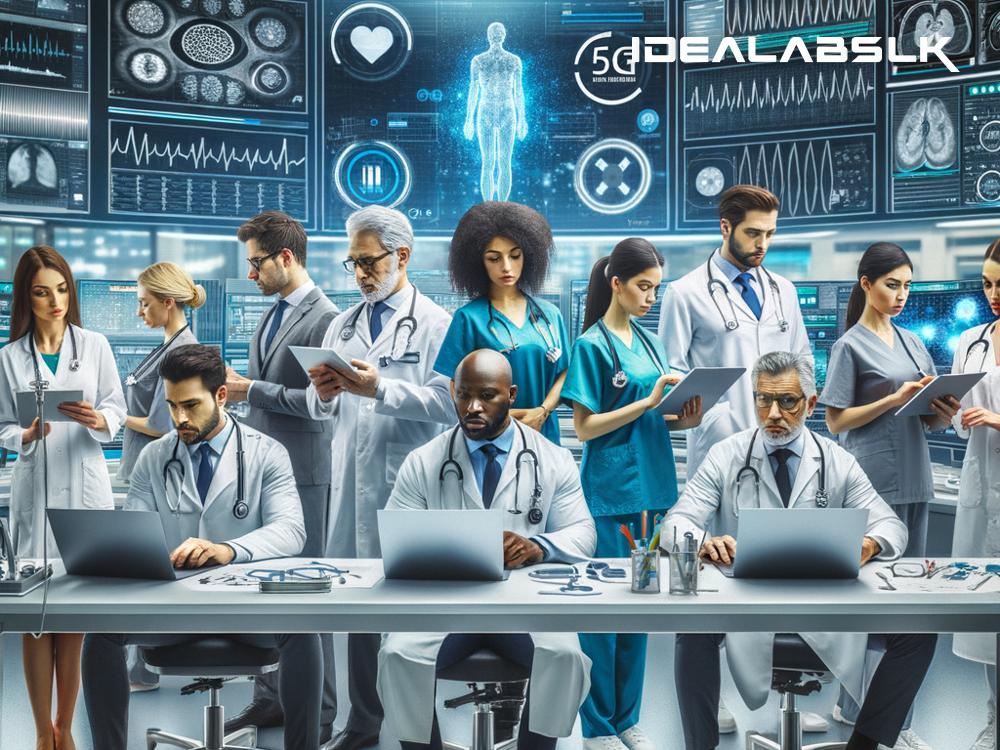Title: How 5G Technology is Transforming Healthcare: Speedier and Smoother Patient Care
In this digital age, the promise of 5G technology is like opening a door to the future – where everything is possible at lightning speed. Beyond just making our internet browsing and video streaming faster, 5G is starting to revolutionize industries, with healthcare standing out as one of the most impacted sectors. Imagine a world where healthcare delivery is not just efficient but seamlessly fast, making patient care more responsive and effective. Let's dive into how 5G technology is making this dream a reality, transforming healthcare with faster, more efficient patient care.
Breaking Down 5G and its Impact
Before we delve into the specifics, let's quickly understand what 5G is. In simple terms, 5G is the fifth generation of mobile networks, designed to connect everyone and everything together including machines, objects, and devices. It's incredibly faster than its predecessors (up to 100 times faster than 4G), can handle more devices at once, and reduces lag significantly, which means virtually instant communication.
Now, let's explore how this groundbreaking technology is reshaping healthcare delivery:
Telemedicine: Care at Your Fingertips
One of the most exciting advancements facilitated by 5G is the leap in telemedicine capabilities. With 5G, telemedicine visits can be incredibly smooth and uninterrupted, even in high-resolution formats. This means doctors can conduct remote consultations and diagnostics with much greater clarity and without any frustrating lags. For patients, especially those in remote or underserved areas, this can dramatically improve access to healthcare.
Real-Time Remote Monitoring and Wearables
Imagine having a medical device or a wearable that not only tracks your health in real time but also instantly transmits this information to your healthcare provider. 5G makes this not just possible but incredibly efficient. Patients with chronic conditions, like diabetes or heart disease, can be monitored round the clock, and any concerning changes in their health can be acted upon swiftly, often before an emergency arises. This kind of proactive healthcare can save lives and improve the quality of life for many.
Emergency Services and Ambulance Care
In emergency healthcare, every second counts. 5G technology is revolutionizing the way ambulance services operate. With 5G, ambulances can become mobile treatment centers. High-speed, real-time data transmission allows paramedics to share critical patient information with the hospital while they are still en route, receive expert advice, and even conduct on-the-spot diagnostics. This level of coordination can significantly improve the chances of survival and recovery by ensuring the patient receives the right treatment at the right time.
Training and Surgery with Augmented Reality (AR) and Virtual Reality (VR)
5G's speed and low latency bring the power of AR and VR to the forefront of medical training and surgery. Medical students can now train in lifelike surgical simulations without any risk to real patients, enhancing their skills in a safe environment. Additionally, surgeons can use AR and VR to plan and even perform surgeries with unprecedented precision. Remote surgeries, where a surgeon operates on a patient from a different location, are becoming a viable option, opening up possibilities for patients to receive care from top surgeons around the globe without the need for travel.
Streamlining Hospital Operations
Beyond patient care, 5G is poised to streamline hospital operations, making them more efficient. From managing patient data and hospital resources in real-time to reducing waiting times through smart scheduling, 5G can enhance the overall hospital experience for patients and staff alike. With better resource management, hospitals can focus more on providing quality care rather than juggling administrative challenges.
Looking Ahead
As we stand on the brink of this new era in healthcare, it's clear that 5G technology holds the key to unlocking immense potential in patient care. From transforming telemedicine and remote monitoring to revolutionizing emergency services and surgeries, 5G is paving the way for a healthcare system that is not only more efficient but also more accessible and responsive to patients' needs.
However, the widespread implementation of 5G in healthcare will require collaboration between technology providers, healthcare institutions, and governments to overcome challenges like coverage gaps, security concerns, and high costs. Yet, as 5G continues to roll out globally, its benefits to healthcare delivery are too significant to ignore.
In essence, 5G technology is not just changing the way we access healthcare; it's reshaping our expectations of what healthcare can and should be. Faster, more efficient patient care is not a distant dream but an imminent reality, thanks to the transformative power of 5G.

